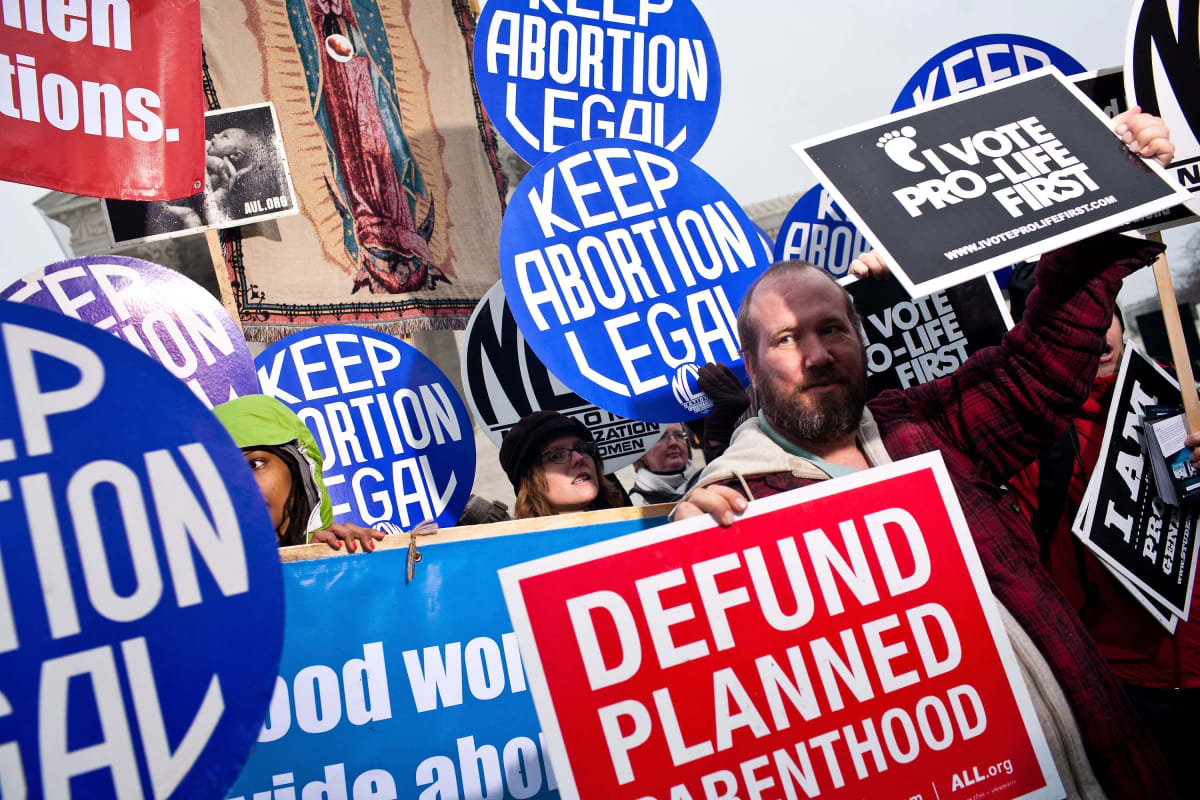5 hurdles that could trip Trump up as he tries to retake the White House

5 ways Donald Trump's bid for presidency could go awry

Former President Donald Trump is currently leading in every one of the seven swing states, namely, Arizona, Georgia, Michigan, Nevada, North Carolina, Pennsylvania, and Wisconsin, per the polling average maintained by The Hill and Decision Desk HQ (DDHQ). Despite varying margins, with Trump leading by more than 5 points in Nevada and a narrow 0.1 points in Wisconsin, this indicates a significant shift in the lead-up to the November general election as Joe Biden won all these battleground states except North Carolina in 2020. President Biden's challenges are compounded by voter dissatisfaction with the economy, internal party divisions over the raging conflict between Israel and Palestine, and concerns surrounding his advanced age. In the latest The Hill/DDHQ average, President Biden's approval rating stands at 39.3%, based on 1,273 polls, while 56% of Americans disapprove of his performance during his time in the Oval Office. On the other hand, the MAGA strongman's resilience is evident, as his base remains steadfast despite a series of controversies and legal challenges, including being twice impeached, and facing criminal trials. However, despite the current favorable outlook for Trump, potential challenges loom on the horizon. Here are 5 five scenarios where things could go wrong for the former POTUS in his bid for a second White House term.
1. The impending threat of a criminal conviction

The immediate danger for Donald Trump lies in the ambiguity of the threat's magnitude. A recent ABC News/Ipsos poll highlighted that 1 in 5 Trump supporters would reconsider their support if the former president were to be convicted of a felony. However, only 4 percent affirmed that they would withdraw their support for him, while the remaining 16 percent claimed they would "reconsider" their pro-Trump stance. It is conceivable that the majority of Trump's supporters would remain loyal, given his assertion that the charges are politically motivated, the likelihood of an appeal following a conviction, and the ever-ardent nature of his MAGA supporters. Nonetheless, a conviction would be a setback, providing Democrats with potent ammunition for their campaign—“do not elect a criminal.” Moreover, it could lend clarity in the minds of some undecided voters. A chunk of the old GOP also remains apprehensive about the 2024 presumptive Republican nominee, as evidenced by former South Carolina governor Nikki Haley's ability to garner around 20 percent of the vote in recent primaries despite suspending her campaign in March. Conversely, an acquittal for Trump in New York would boost his momentum and enable him to discredit the other pending cases against him. The status of the other three criminal cases remains uncertain. In New York, a verdict is expected soon, with Judge Juan Merchan anticipating the commencement of closing arguments on Tuesday.
2. A disastrous presidential debate outing for Trump

The first of the highly-anticipated presidential debates between Donald Trump and the incumbent Joe Biden is scheduled for June 27 in Atlanta, to be televised by CNN, while the second debate will be on September 10, broadcast by ABC. The former president has derided his opponent regarding his debating skills, branding him as “the worst debater I have ever faced” and claiming “he can’t put two sentences together.” Despite evading every one of the GOP primary debates, Trump's agreeing to the all-important presidential debates shows his eagerness for this particular occasion. However, his recent proposals have garnered widespread criticism, with some labeling them as authoritarian, including his stance on firing US Attorneys who refuse his orders to prosecute someone, pardoning January 6 Capitol riot convicts, allowing states with strict abortion laws to monitor women’s pregnancies, and carrying out mass deportations of illegal migrants.
3. An election fought on abortion rights

The outcome of the 2024 US general election will be significantly influenced by the issues on which it is contested. Despite vulnerabilities in areas such as immigration and the economy, President Joe Biden and the Democrats possess a significant advantage over Republicans in the form of the abortion rights issue. Following the Supreme Court's decision to overturn Roe v Wade in June 2022, social conservatives achieved a major legal triumph in their quest to strike down the right to abortion. However, this has proven to be a political challenge for the Republican Party because, in the last two years, liberal proponents have emerged victorious in every statewide ballot measure related to abortion, even in traditionally conservative states like Kentucky and Kansas. The GOP's lackluster performance in the 2022 midterm elections was widely attributed to the abortion issue, and public opinion polls have consistently shown disapproval of the Supreme Court's decision. The salience of abortion as a political issue shows no sign of diminishing, with new measures being implemented continuously. The recent enactment of a six-week abortion ban in Florida underscores this trend. While former President Donald Trump has tried to avoid taking a clear stance on the issue, the risks it poses for him, particularly among the crucial demographic of female suburban voters, are evident.
4. Trump cannot win the 2024 election by himself

The big question for the 2024 presidential race is who Donald Trump will choose as his running mate. Although the ex-Commander-in-Chief’s stature will dwarf the charisma of his vice-presidential pick, the choice still matters and could have negative consequences. For instance, South Dakota Governor Kristi Noem (R), once a serious contender for the role, faced nationwide criticism after including a story about killing her dog in her new book and struggling through a tough media tour to promote it. Whoever Trump selects will need to withstand thorough scrutiny. There are also concerns within his campaign team surrounding the impact of divisive candidates in other key state races. One notable example is Kari Lake, a highly controversial former news anchor who is expected to be the GOP nominee for Senate in Arizona. Additionally, there is the possibility of an unexpected crisis disrupting the election. In 2019, no one anticipated that Trump’s 2020 reelection bid would be overshadowed by a global pandemic. Similarly, eight months ago, few people thought that the Israel-Hamas conflict could become a significant factor in this year’s election.
5. Biden’s ‘blue wall’ halting the Trump train

The current polls offer a potential advantage for President Joe Biden, albeit a narrow one. Excluding the increasingly improbable scenario of the Democrat statesman winning North Carolina, there are six battleground states in contention. Polling data reveals a notable contrast in Trump's support between the three southern or southwestern states (Arizona, Georgia, and Nevada) and the three northern states previously considered part of a Democratic stronghold (Michigan, Pennsylvania, and Wisconsin). According to The Hill/DDHQ averages, Trump leads by 3 to 6 points in the former group, but by less than 2 points in the latter. It's important to note that these polls may fluctuate before Election Day and could potentially be unreliable. However, if Biden were to secure the "blue wall" states, it would significantly impact the election outcome. If Biden were to win these three states, while Trump secured the three southern battlegrounds, and all other factors remained unchanged from 2020, the President would win reelection by a narrow margin of 270 electoral votes to 268 in the electoral college.










